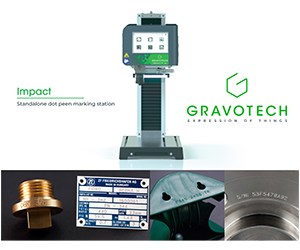School Days
I recently had the opportunity to visit machine tool builder Toyoda Machine Works in Japan. A part of my visit included a tour of the company's apprenticeship school.
I recently had the opportunity to visit machine tool builder Toyoda Machine Works in Japan. A part of my visit included a tour of the company's apprenticeship school. It was interesting, in part, because it is an example of what many U.S. companies once included as part of their labor force source. Toyoda, like many large Japanese companies, guarantees itself a steady supply of skilled shop personnel by taking responsibility for training them by maintaining schools dedicated to the purpose. The system at Toyoda works like this:
Students, after graduating high school, are recommended to attend a company sponsored training school, such as Toyoda's. Once enrolled, they begin a five-year program that culminates in certification as either a general skills master or a master of a specific skill set such as turning, grinding, machining or materials (foundry). In addition, each of these graduates is qualified to teach in the school. That's helpful since the full-time faculty totals four. The rest of the 15 instructors are graduates who are working in the company.
The program for machinists is comprised of three stages. The students' first year is a combination of classroom study of machining basics and a dose of on-the-job-training in the factory. The classroom work involves textbooks and instruction and hands-on lab work in the school's machine shop.
Since many of the students come from areas too far away to commute, the company provides housing for those students. It's dormitory-like, but it helps the students concentrate on the job of learning their skills.
At the end of the first school term, which runs from April through March, the students are tested. Passing the test gives them a certificate and allows them to proceed to the next level of the program. Year two is spent in the shop working with senior employees in a sort of mentoring program. A variety of jobs are done to round out the students. At the end of year two the students are again tested, and if they pass, they are given a second-grade skill level assessment.
Next step on the training road is a three-year hitch, which is more on-the-job-training under the eye of mentors. When these three years are completed,the students are given another exam, and if passed, awarded first-grade skill-level assessment. After five years, the students are really ready to go to work.
Here, we take out want ads for workers. Are we missing something?
Related Content
-
Solve Worker Shortages With ACE Workforce Development
The America’s Cutting Edge (ACE) program is addressing the current shortage in trained and available workers by offering no-cost online and in-person training opportunities in CNC machining and metrology.
-
Top Shop Builds Upon Employee Ownership for Future Success
In its quest to become the Fox Valley’s best-in-class employer, A to Z Machine has adopted an ESOP, expanded benefits and invested in apprenticeships.
-
8 Ways to Increase Productivity on the Manufacturing Floor
When it comes to machine shop productivity, continuous improvement depends on efficient employees, equipment and processes.













